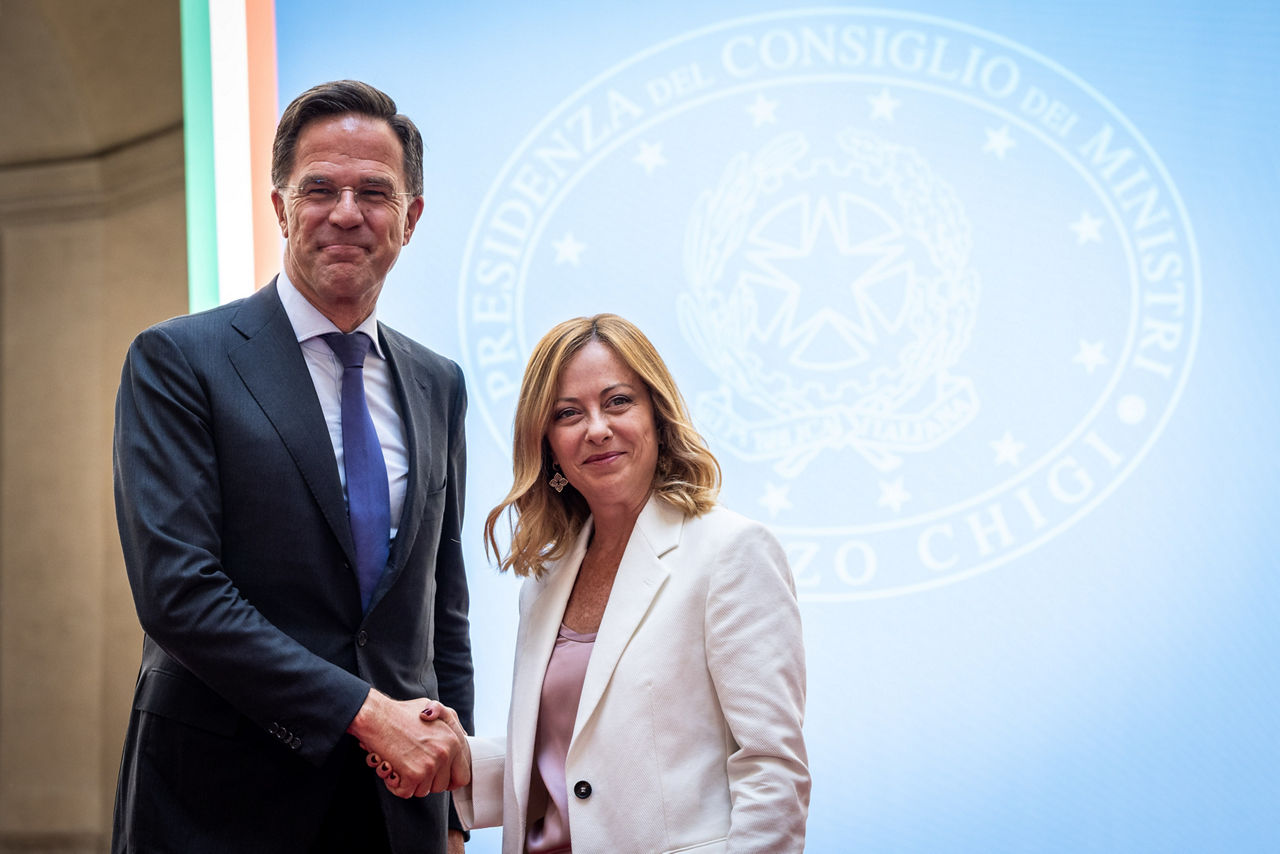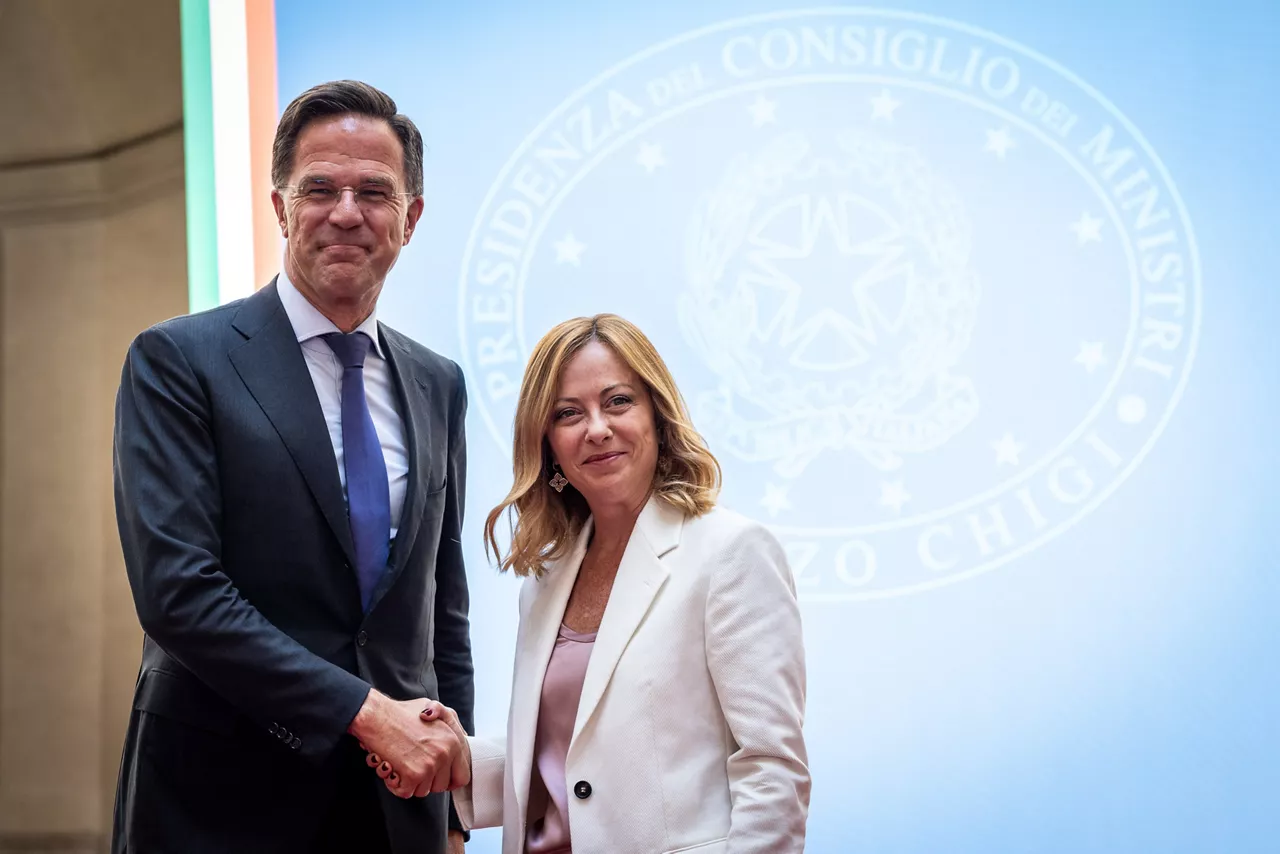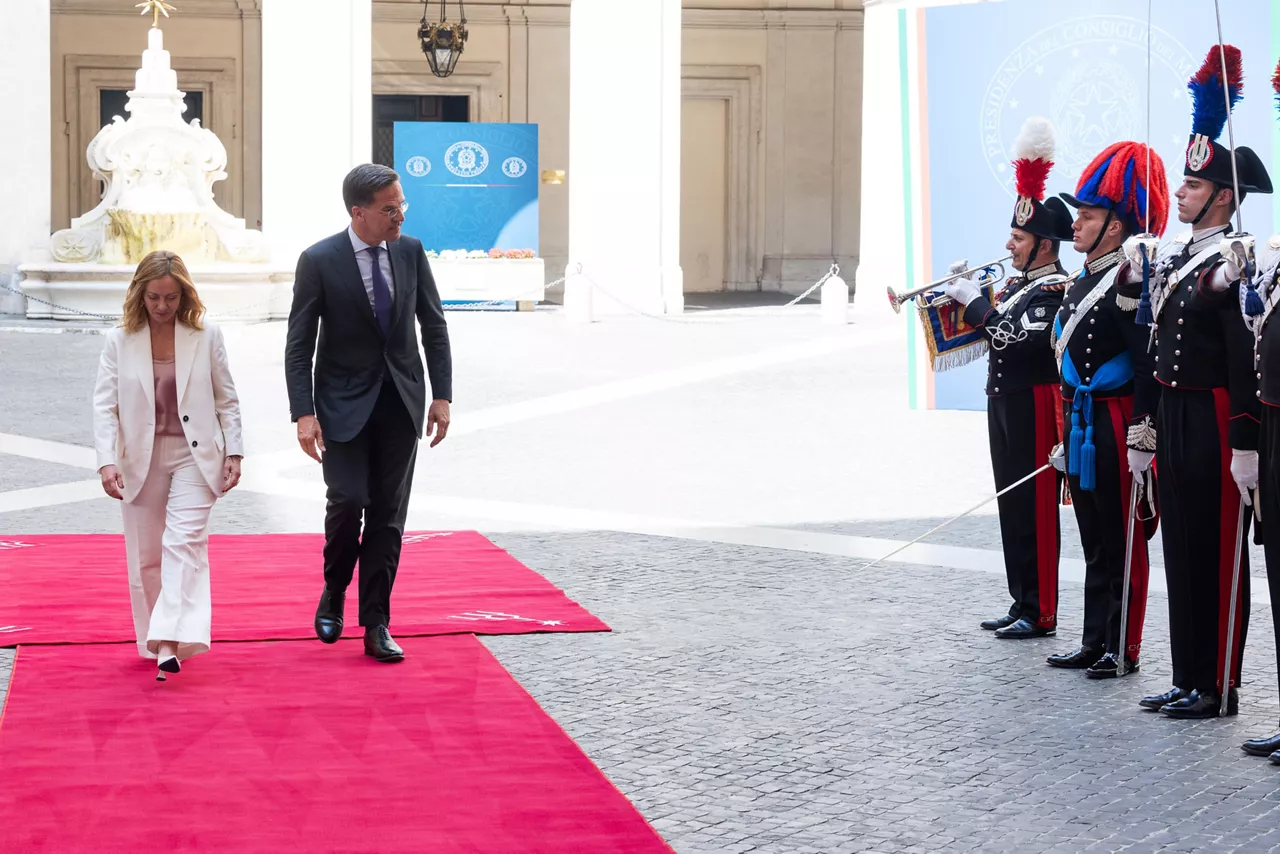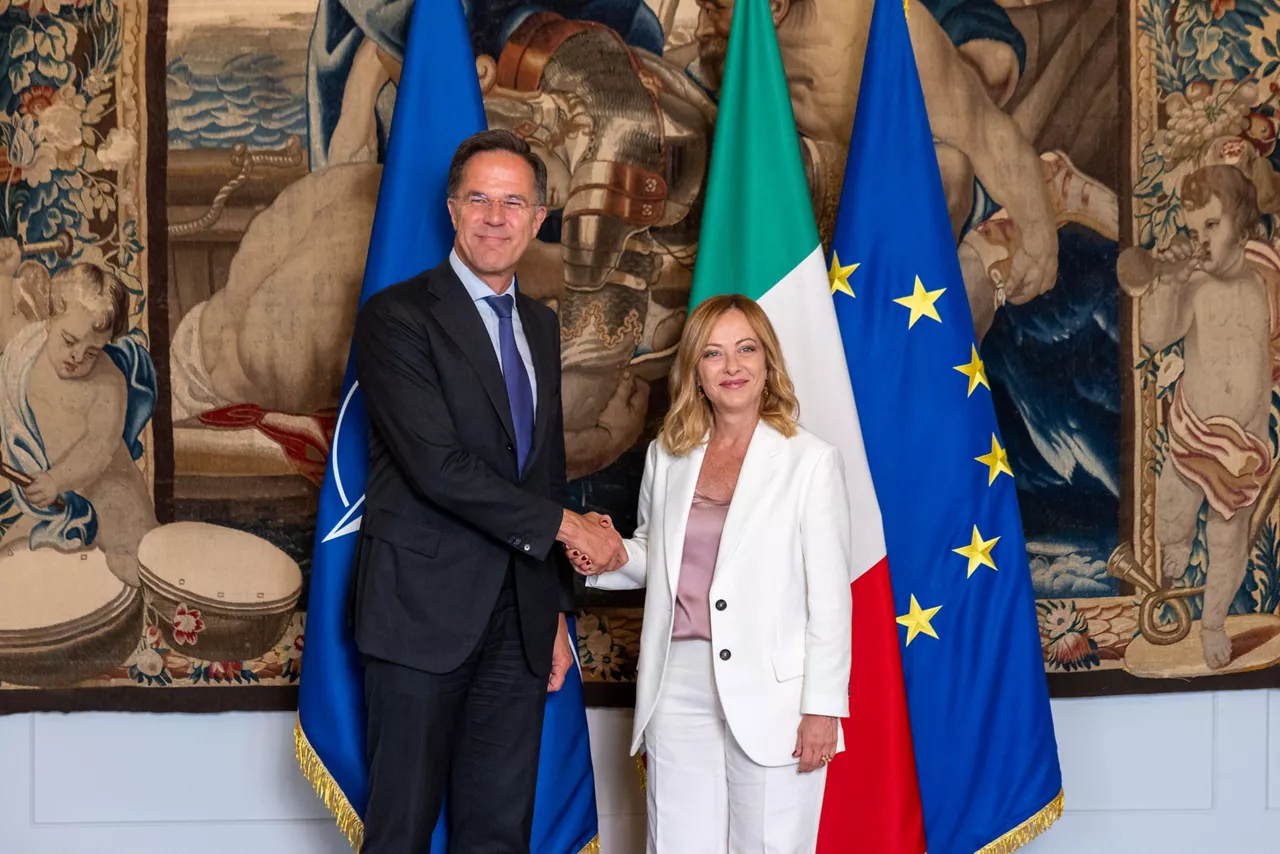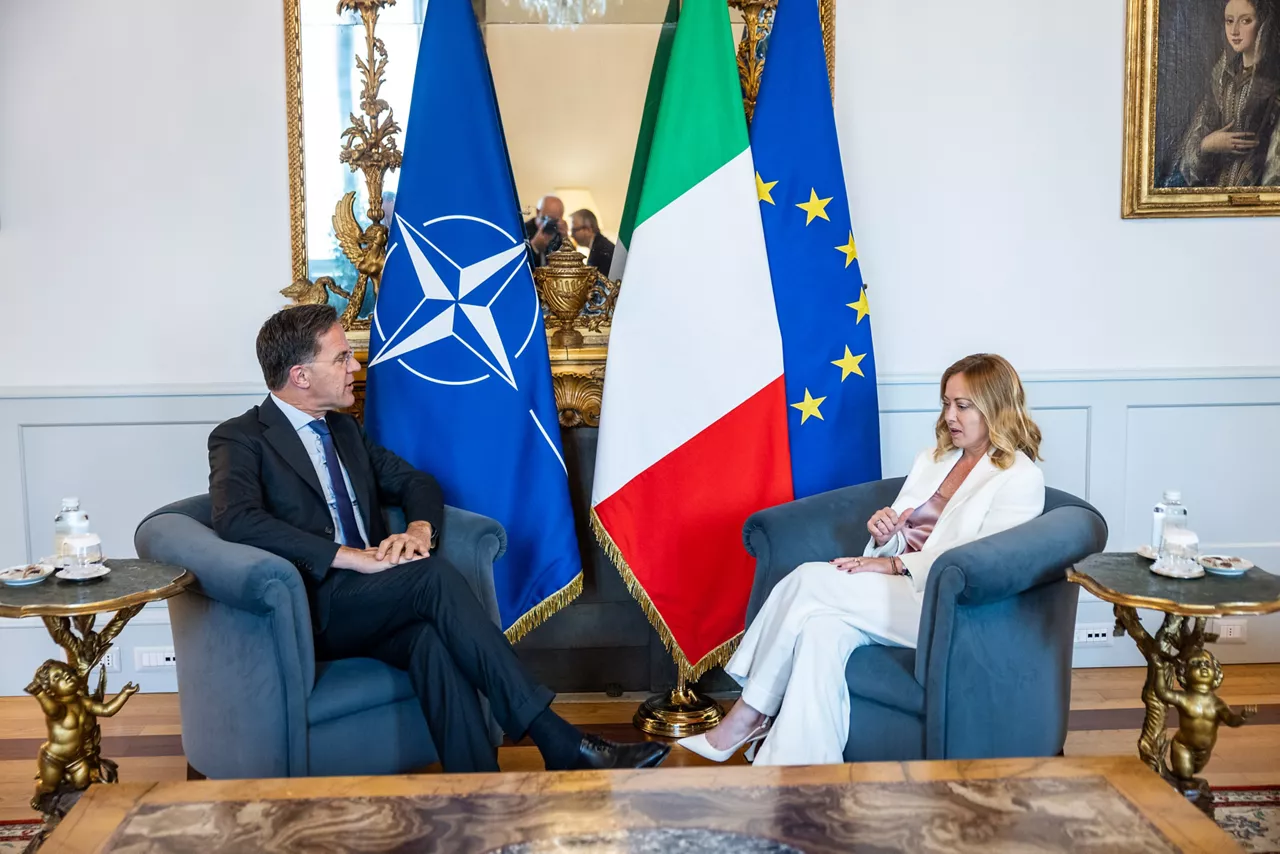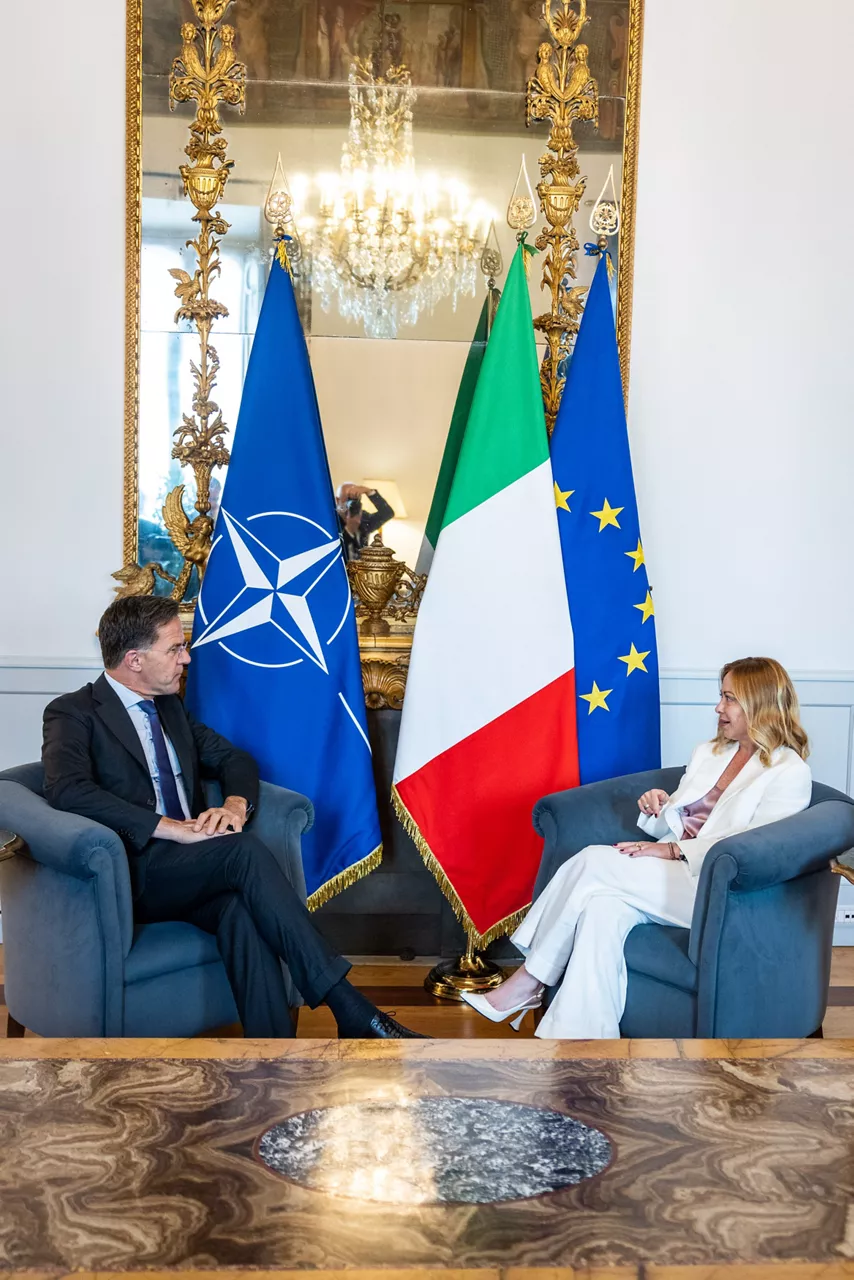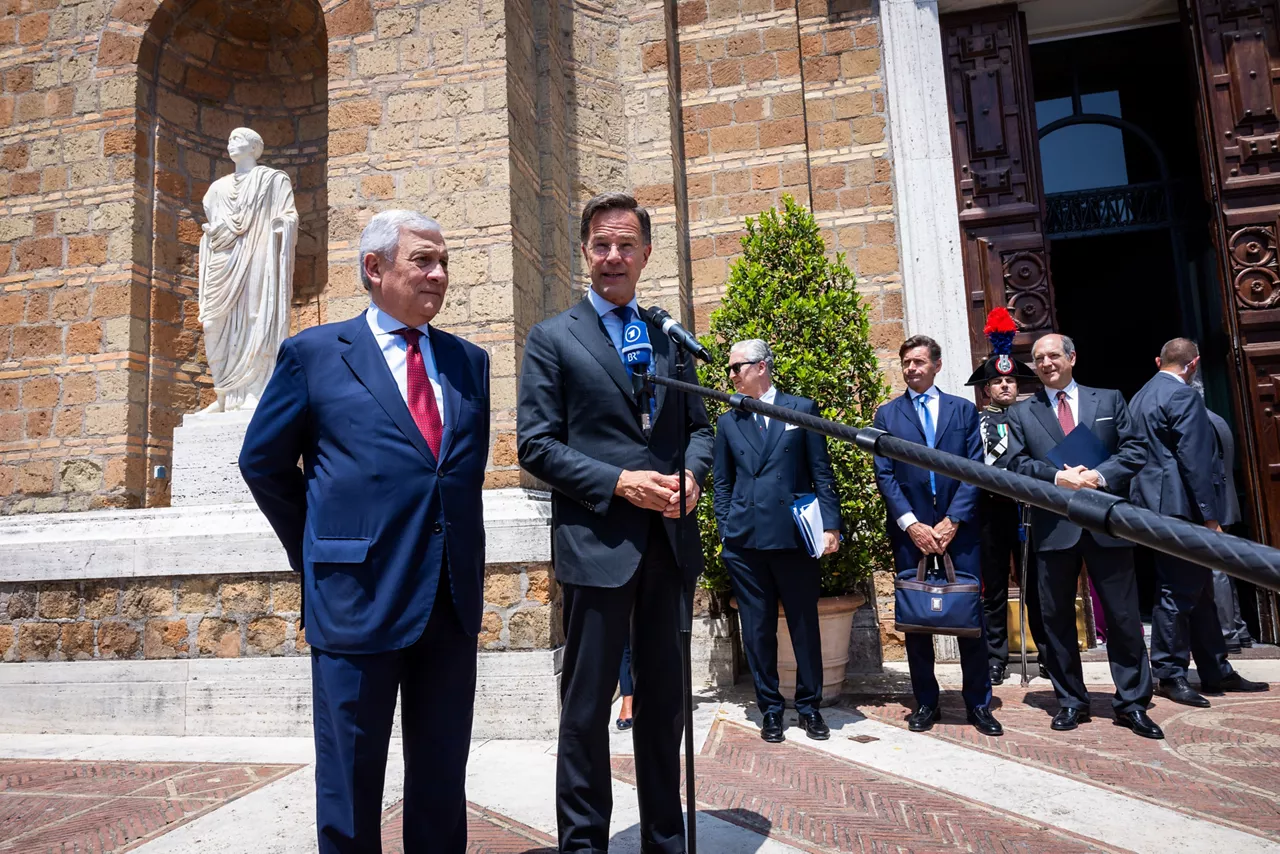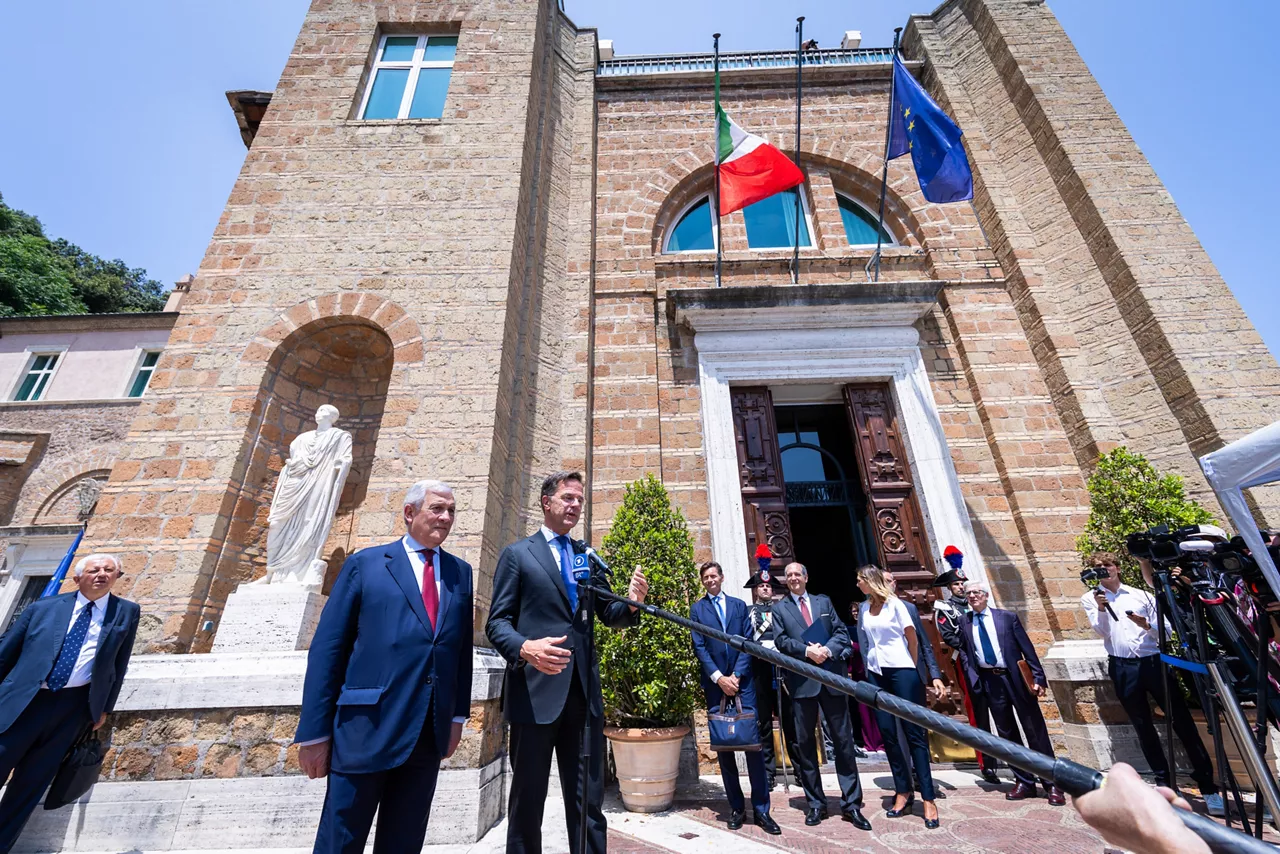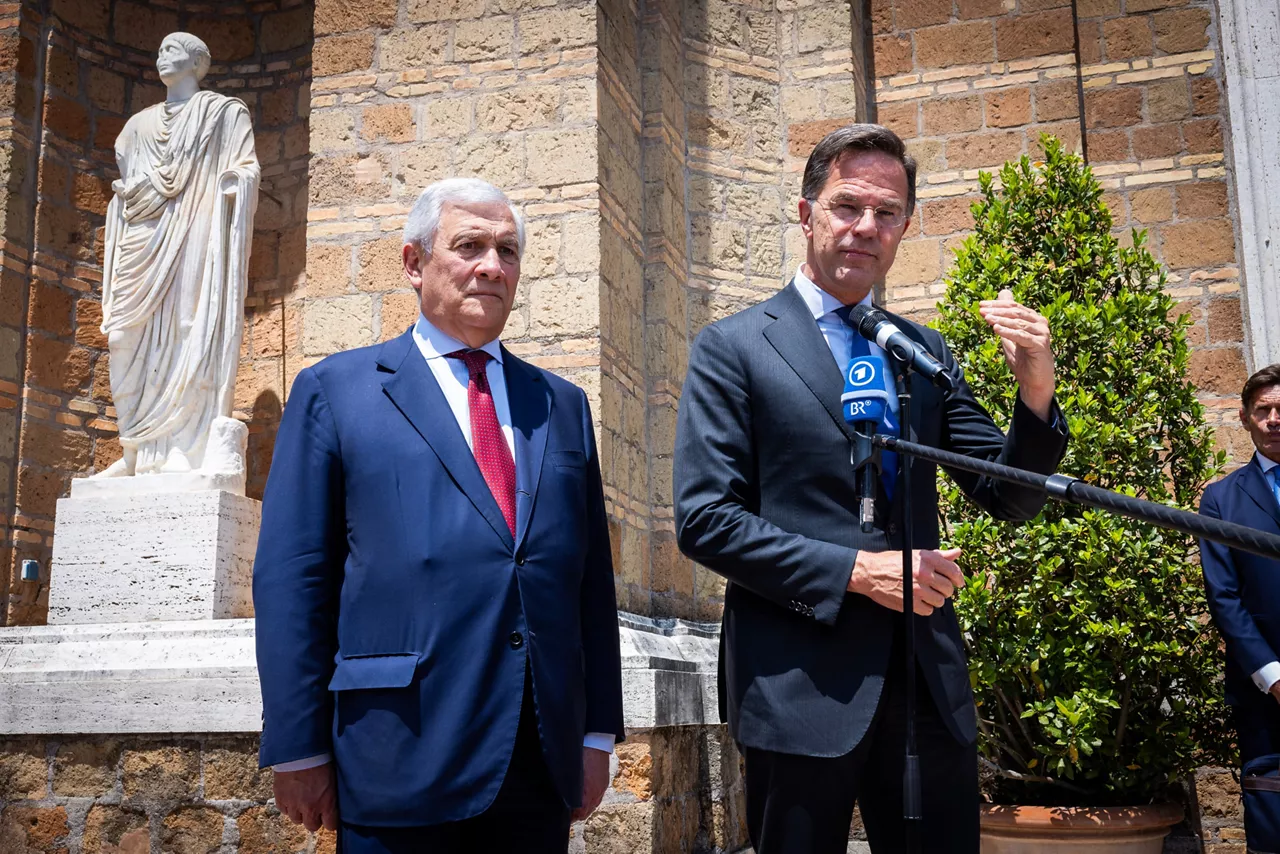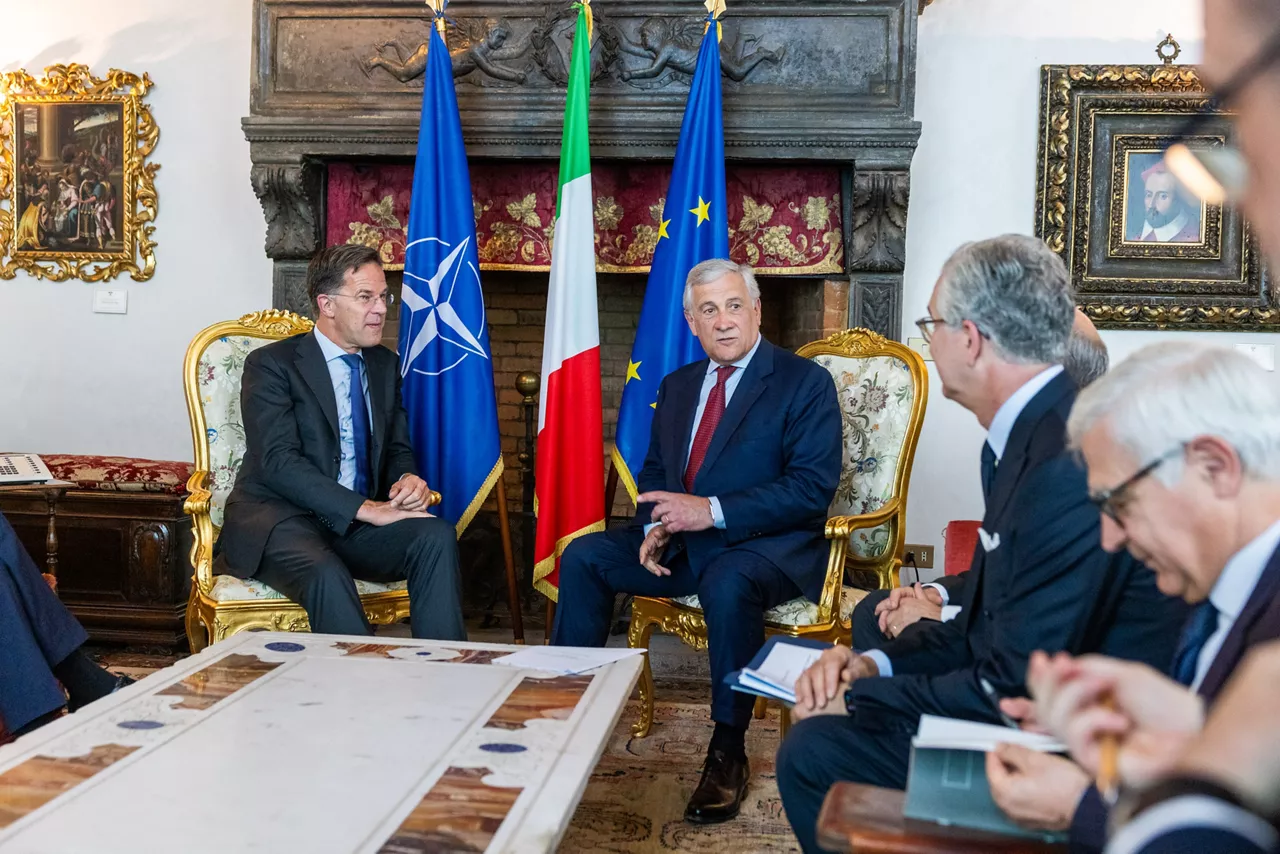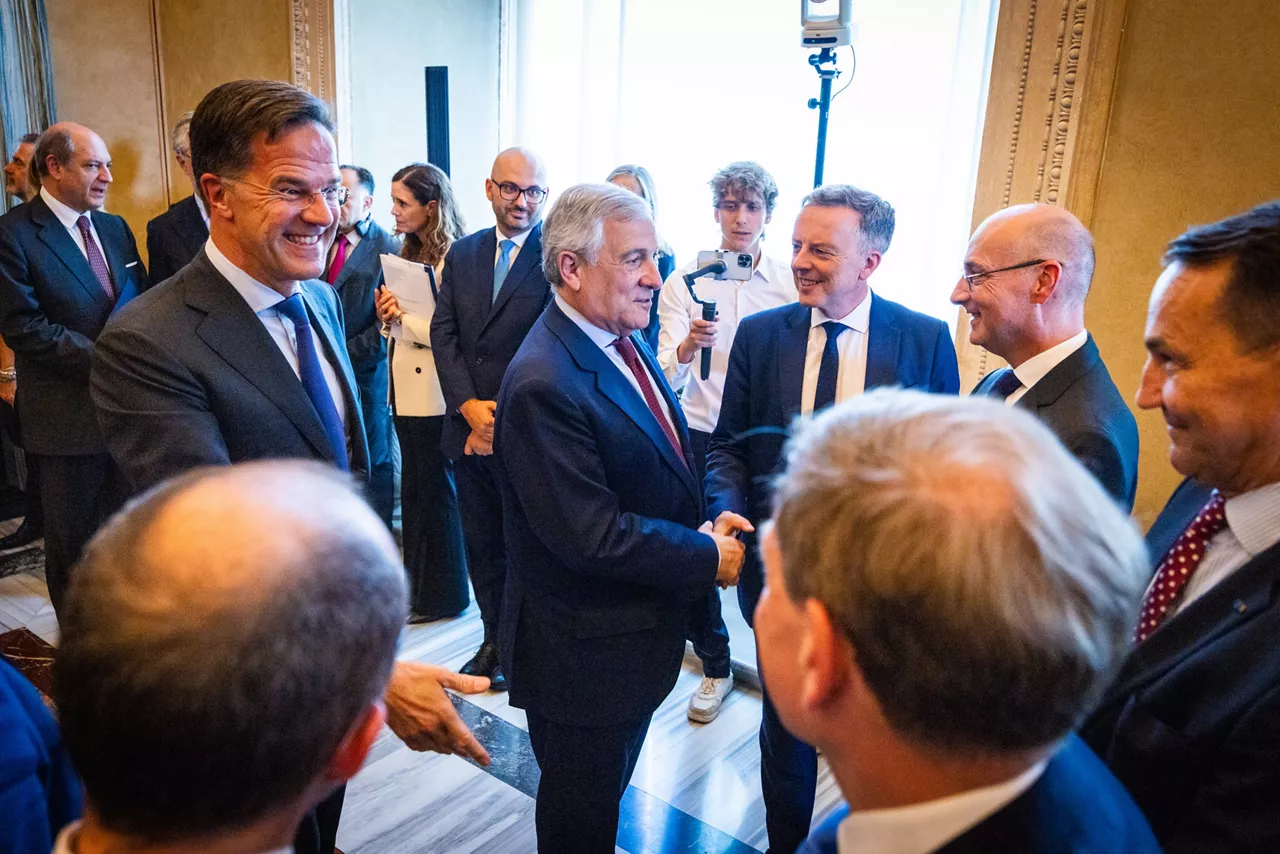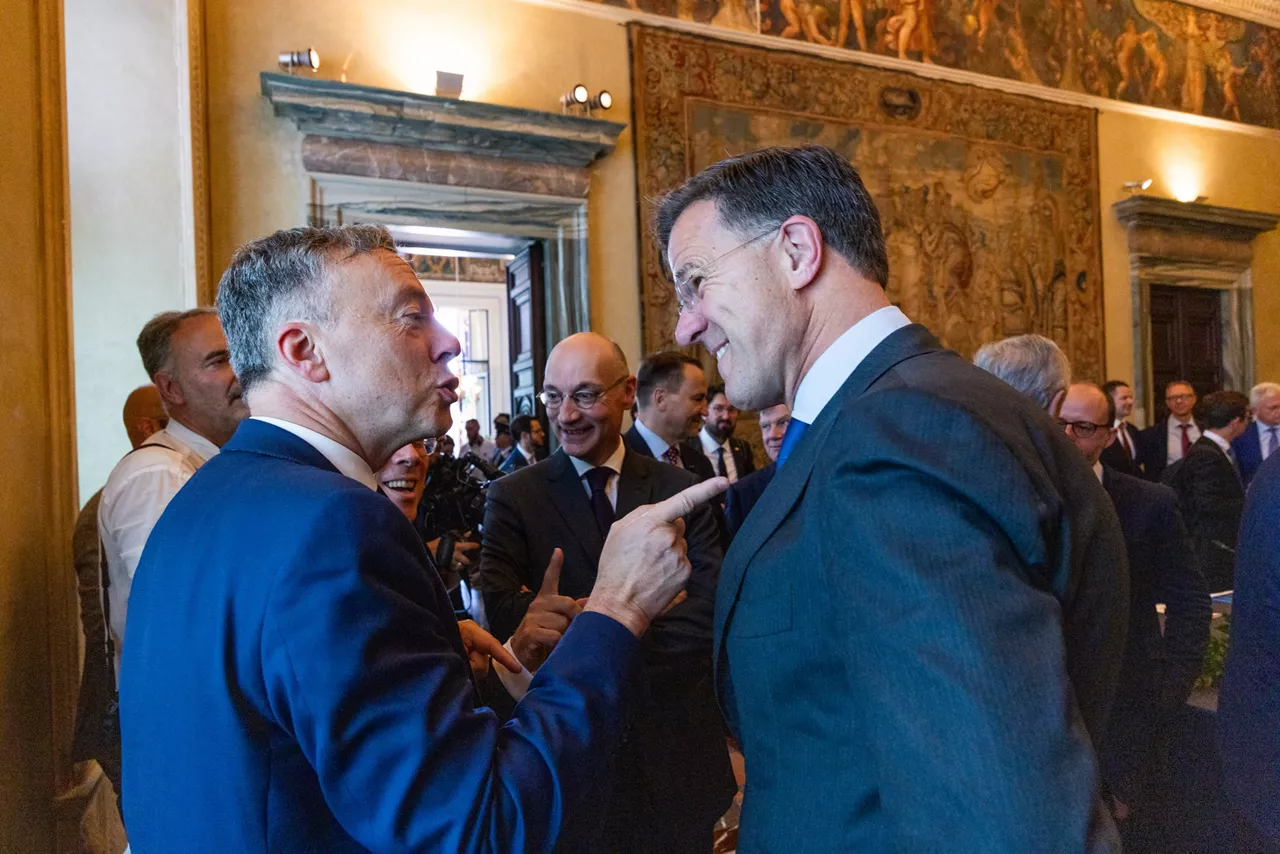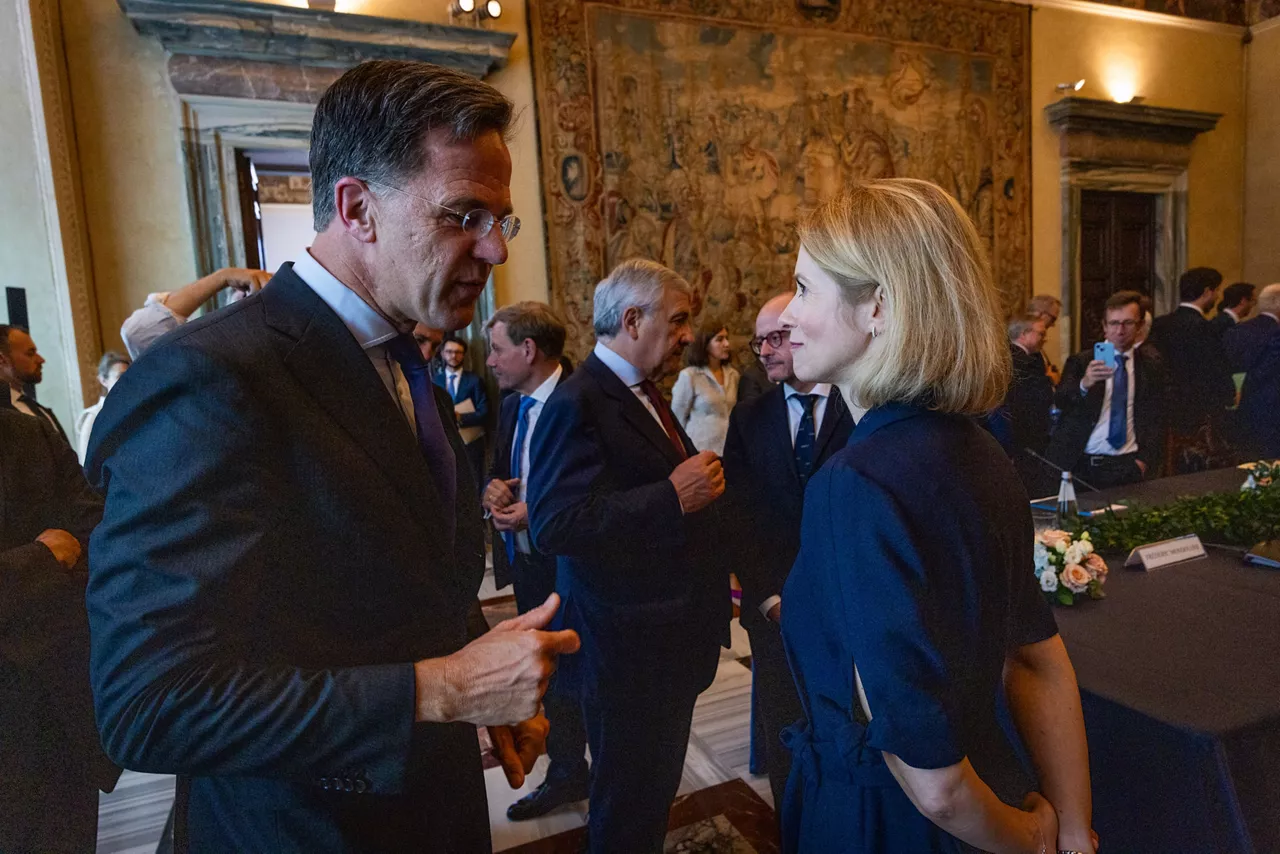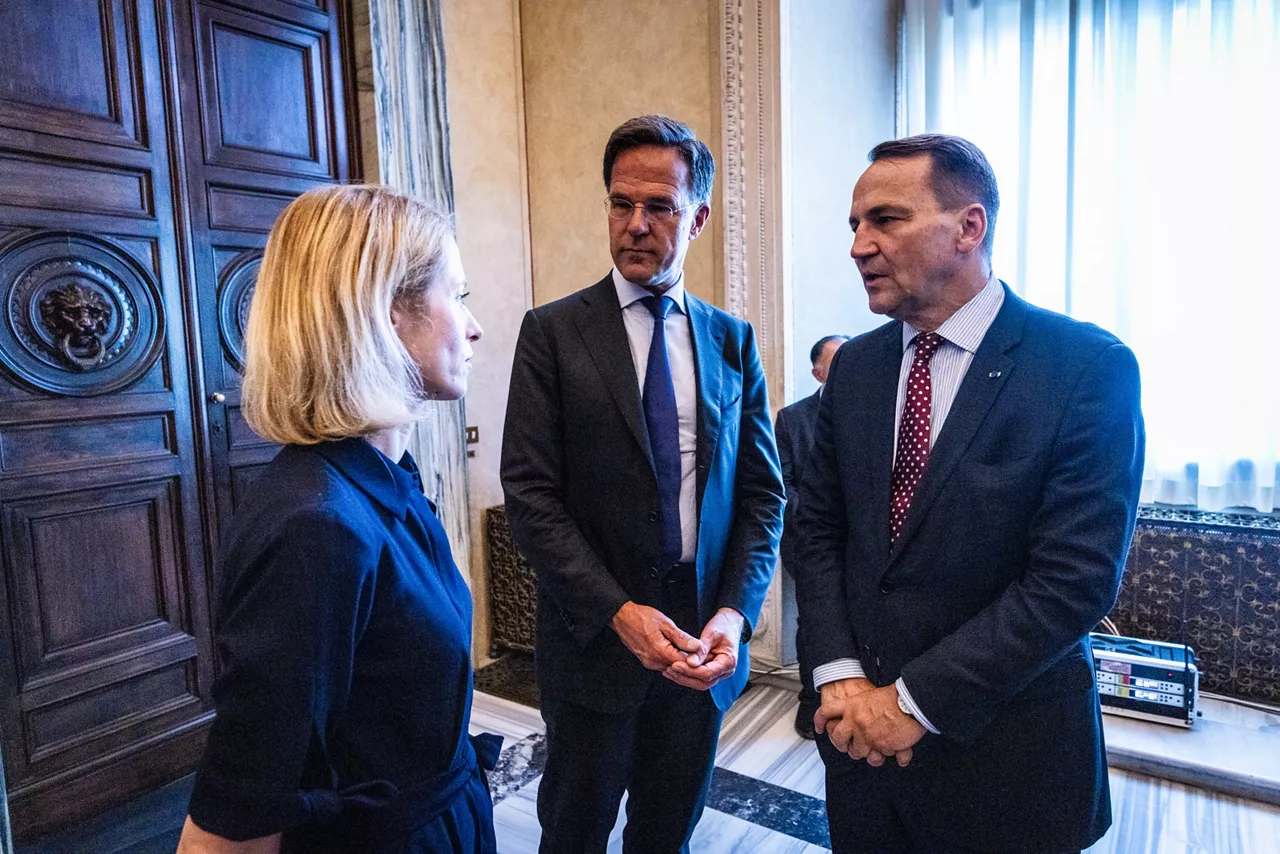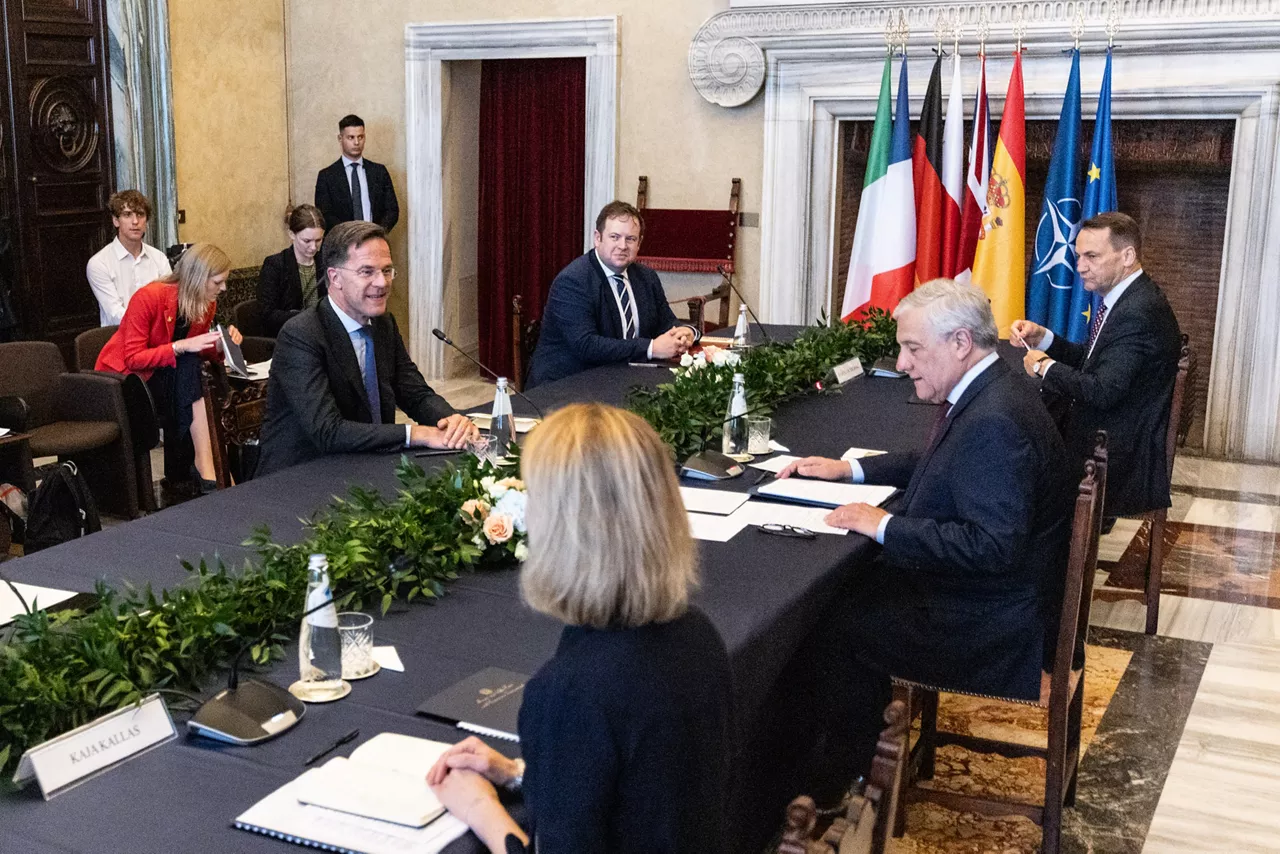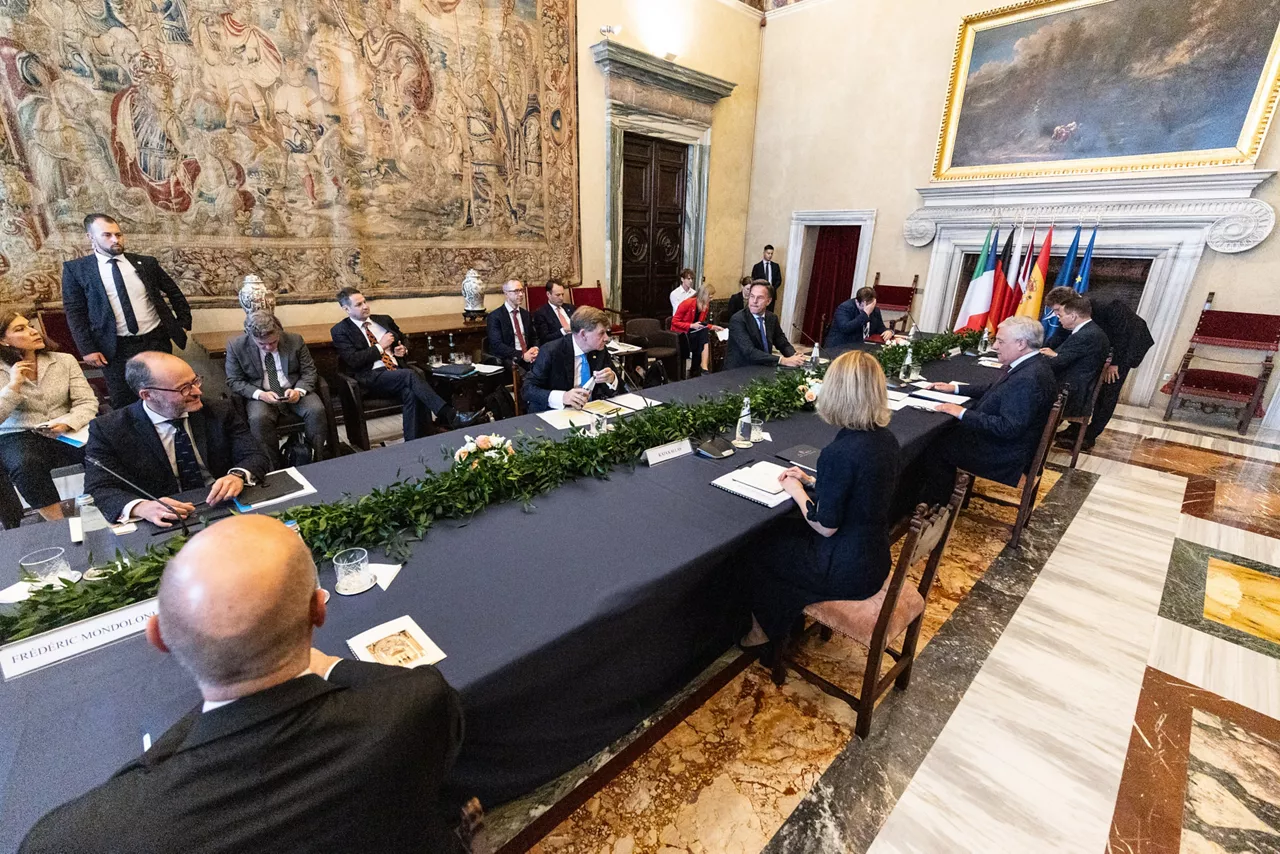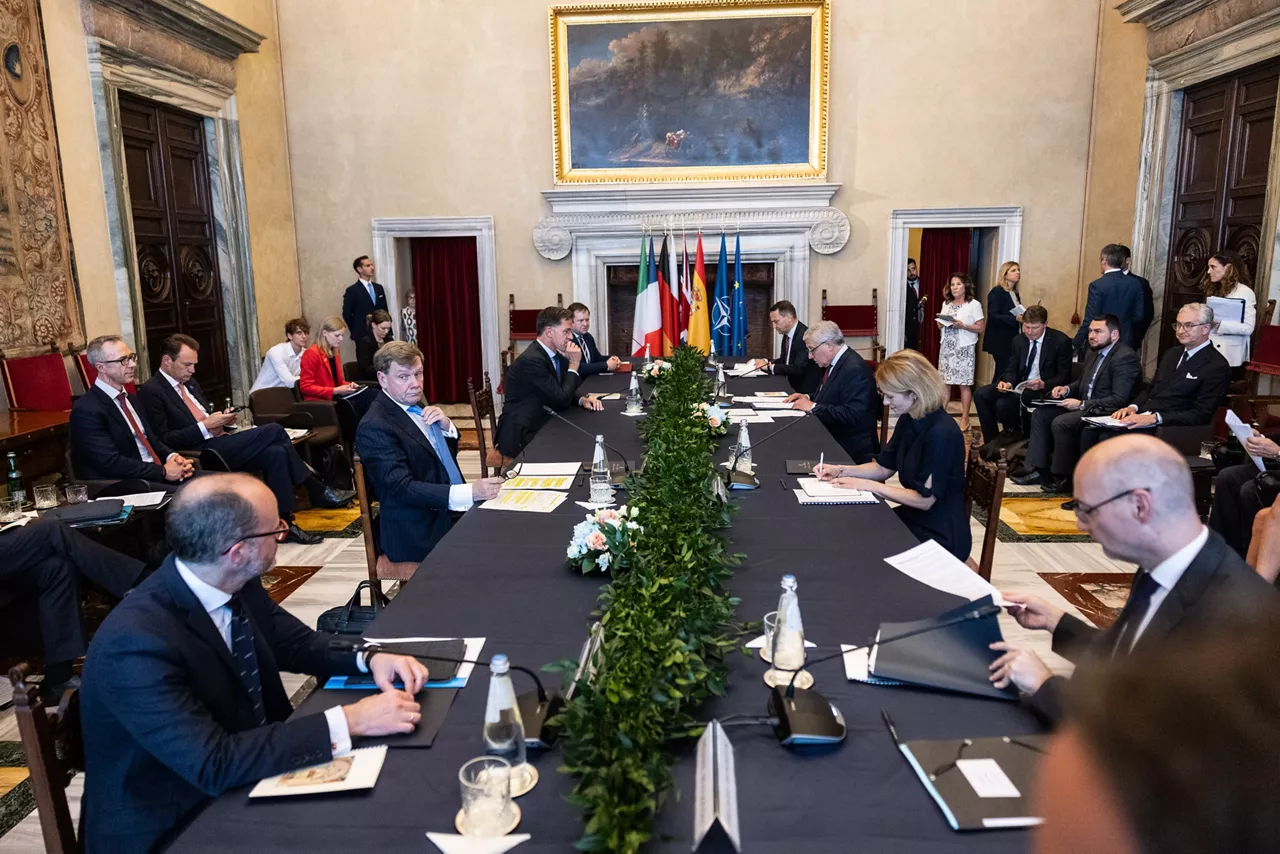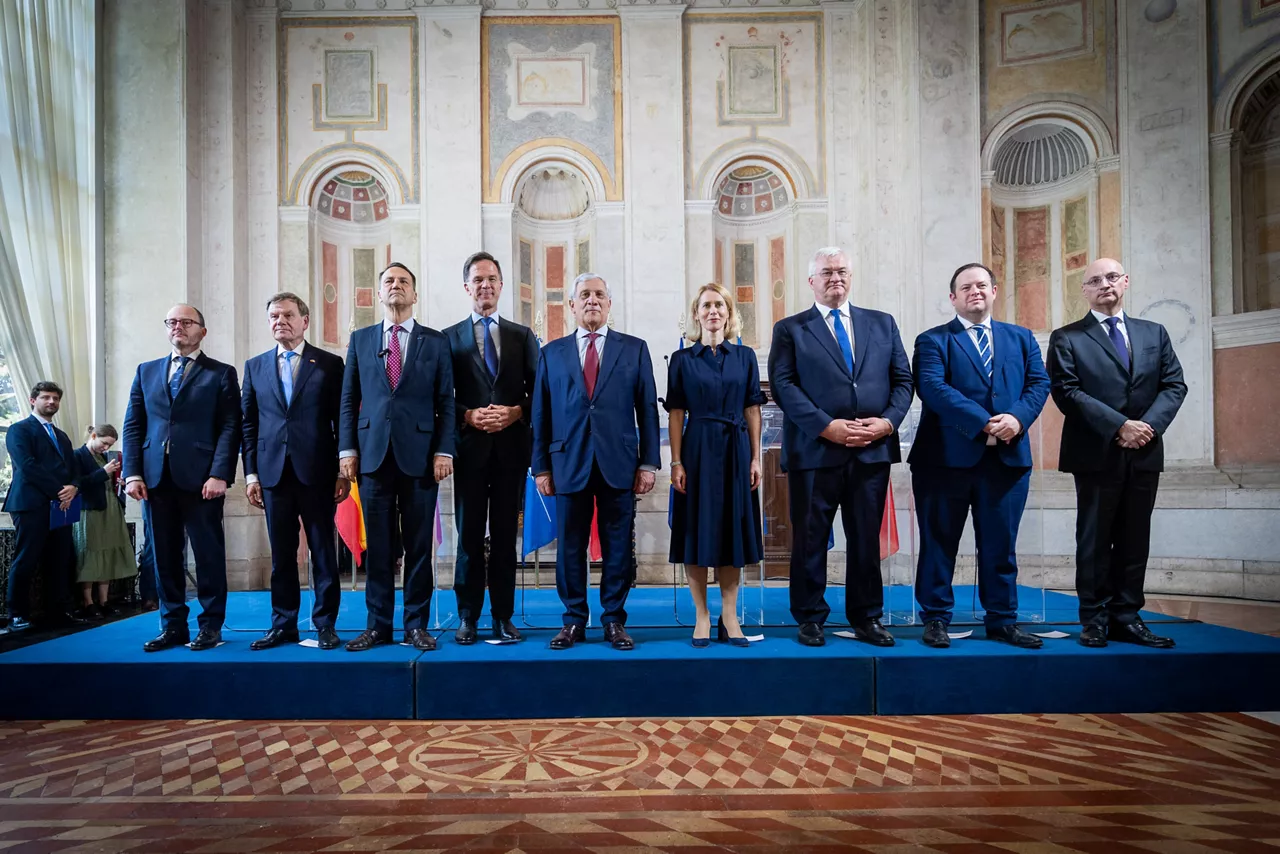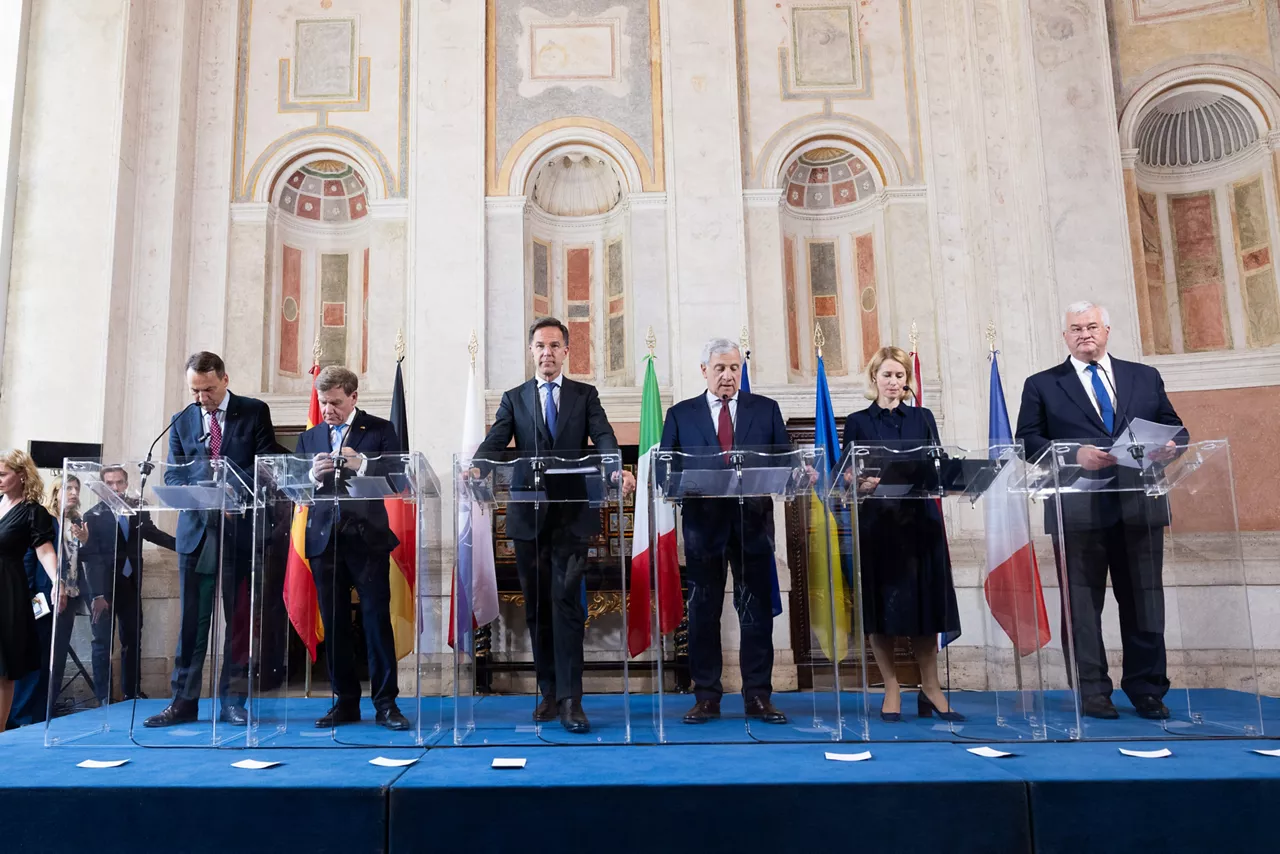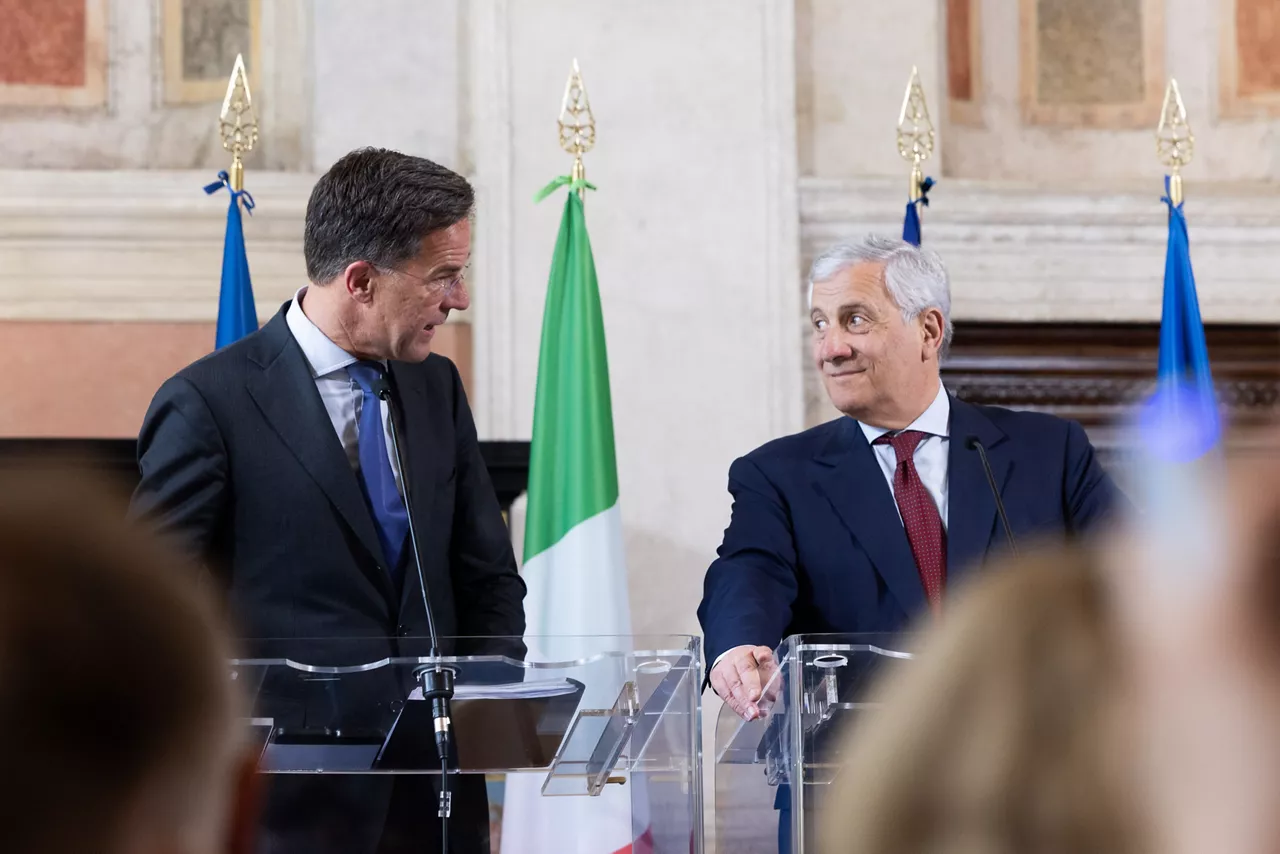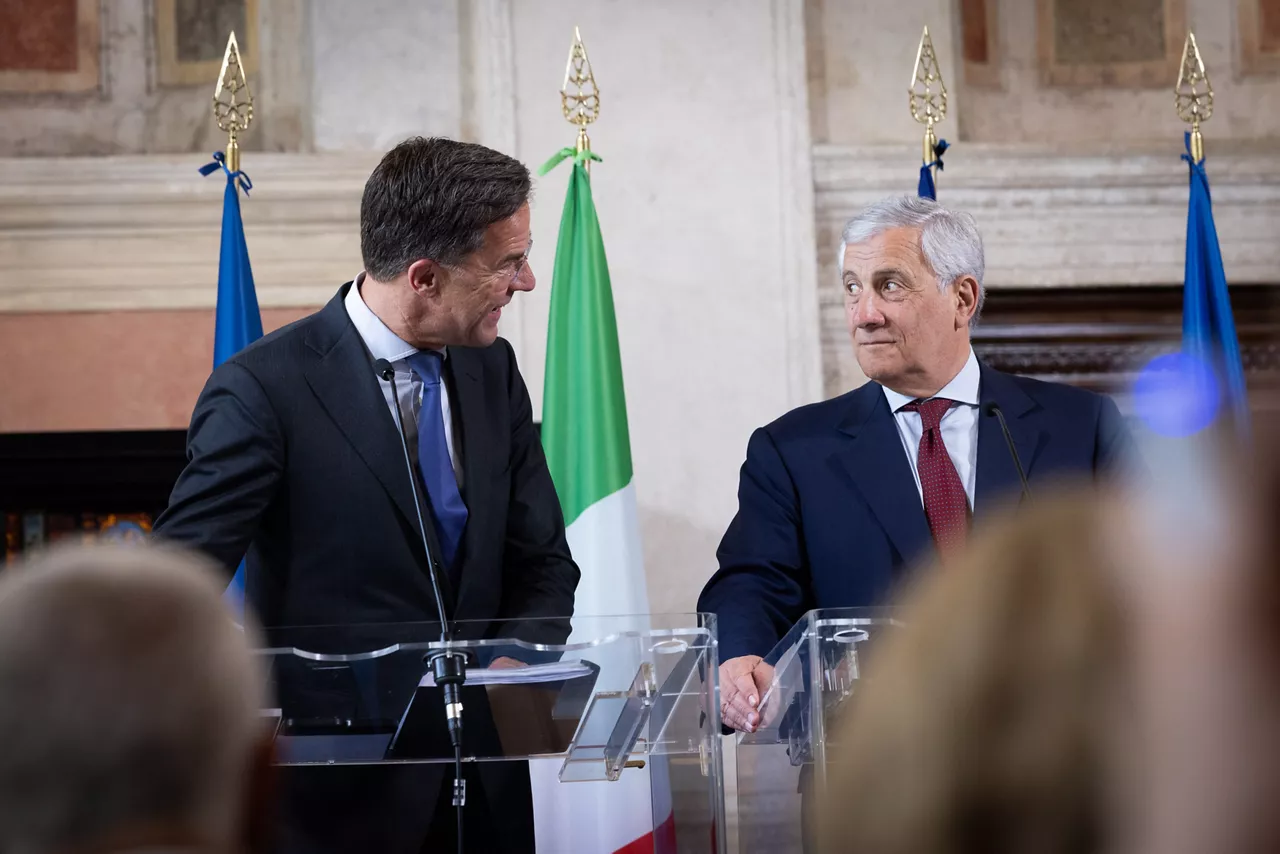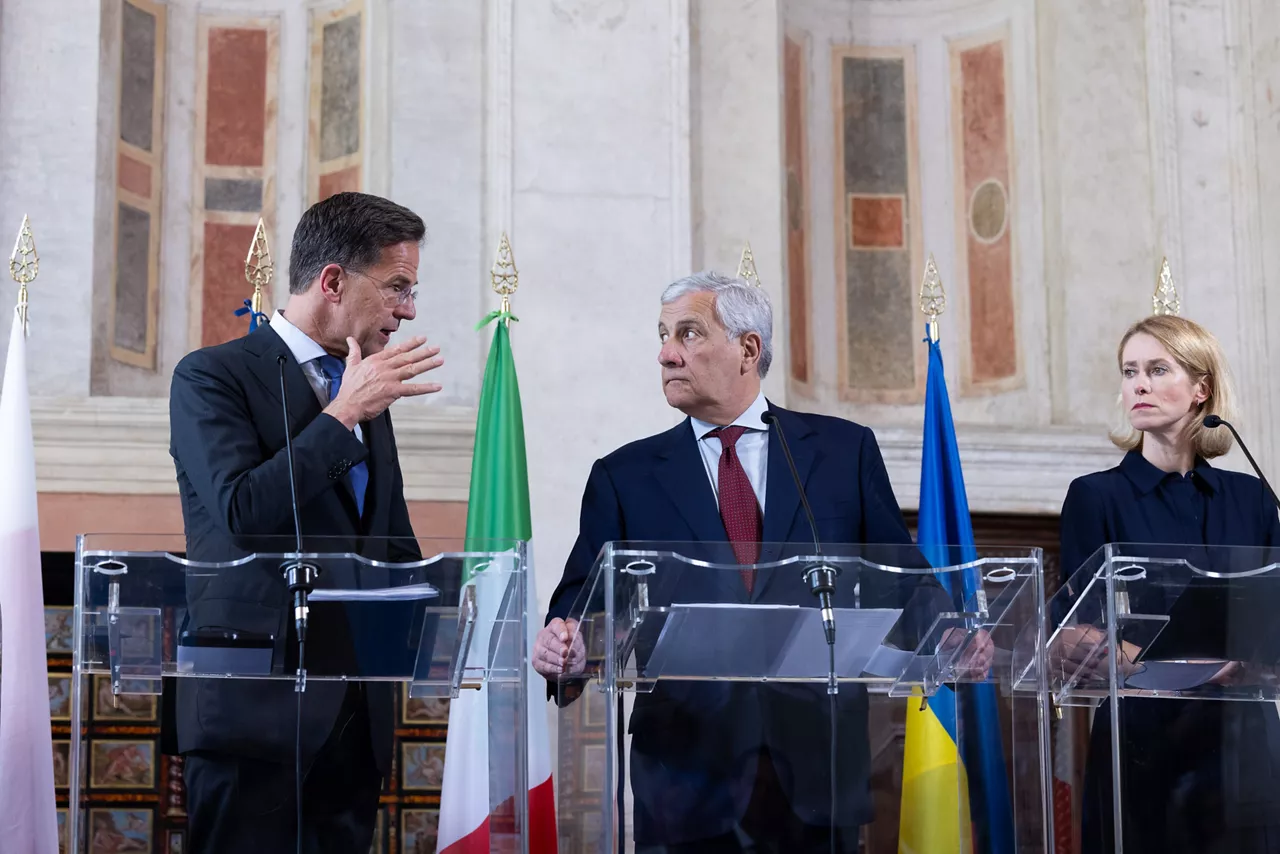Download NATO’s broadcast-quality video content free of charge

NATO MULTIMEDIA ACCOUNT
Access NATO’s broadcast-quality video content free of charge

Check your inbox and enter verification code
You have successfully created your account
From now on you can download videos from our website
Subscribe to our newsletter
If you would also like to subscribe to the newsletter and receive our latest updates, click on the button below.
Enter the email address you registered with and we will send you a code to reset your password.
Didn't receive a code? Send new Code
The password must be at least 12 characters long, no spaces, include upper/lowercase letters, numbers and symbols.
Your password has been updated
Click the button to return to the page you were on and log in with your new password.
Joint press conference
by NATO Secretary General Mark Rutte withWeimar Plus Foreign Ministers in Rome, Italy
12 June 2025
3 MIN READ
(As delivered)
Thank you so much. And thank you Antonio for organising this event and also for inviting the EU and NATO.
Basically, let me be very brief. Three big issues today. All these three issues will also be central to the NATO Summit in two weeks.
One, we need to ramp up our defence spending. We heard the German Chief of Defence a couple of days ago saying that by 2029, by 2030 Russia could be ready to try something against NATO territory. So we are safe now. We are not safe three to five years from now, so we have to spend more. Luckily, it is not just in 2014 where we did this, ‘we thought of a number, and then we agreed to the number.’ No, the new spending target is really rooted in facts, in deep study we have done collectively on where the gaps are in our capabilities, how we have to fill them. And the Defence Ministers agreed on that last Thursday. And now it's up to the leaders to agree on the extra spending needed to make that possible.
Spending is one thing but we also need, and that’s the second big issue, the defence industrial production. And we are not producing enough. And this is really keeping me up at night, making sure that we not only ramp up spending, but also ramp up the defence industrial production. As you know, when a country now orders a Patriot system, it will be delivered in 10 years. The question then is, ‘in the morning or the afternoon?’ Why does it matter? Because in the afternoon, the F-35 will arrive. This is now the state of play. So we have fantastic industrial companies in the US, all over Europe and Canada, but they are not producing at speeds. So we need more shifts, more production lines. We do not have to see an increase in prices. And I was really impressed by the UK Defence Review, which came out, I think it was last week Friday or early this week. Basically stating that they want to build six new ammunition factories. And this is what we need all over Europe, because we are not producing and particularly ammunition is crucial.
And then thirdly, Ukraine. Because we need to make sure that Ukraine is in the best possible position to one, [sustain] the ongoing conflict with Russia, [following] the unprovoked Russian aggression against Ukraine, but also to be in the best possible position when a long term cease-fire/a peace deal arises to make sure that Putin will never, ever try this again. And all these issues were discussed today. Really, I think this very important. And this is basically a great build-up towards the Summit in the Hague, early next week the G7, the week after the NATO Summit. And there will also be an EU summit in that week.
So this is NATO standing united, and I think that’s a crucial message. So thank you again, Antonio.
Related assets
NATO Secretary General Mark Rutte meets with Giorgia Meloni, Prime Minister of Italy
NATO Secretary General Mark Rutte meets with Giorgia Meloni, Prime Minister of Italy
NATO Secretary General Mark Rutte meets with Giorgia Meloni, Prime Minister of Italy
NATO Secretary General Mark Rutte meets with Giorgia Meloni, Prime Minister of Italy
NATO Secretary General Mark Rutte meets with Giorgia Meloni, Prime Minister of Italy
Doorstep statement by NATO Secretary General Mark Rutte with Antonio Tajani, Minister of Foreign Affairs of Italy ahead of the Weimar Plus meeting in Foreign Ministers’ format
Doorstep statement by NATO Secretary General Mark Rutte with Antonio Tajani, Minister of Foreign Affairs of Italy ahead of the Weimar Plus meeting in Foreign Ministers’ format
Doorstep statement by NATO Secretary General Mark Rutte with Antonio Tajani, Minister of Foreign Affairs of Italy ahead of the Weimar Plus meeting in Foreign Ministers’ format
NATO Secretary General Mark Rutte and Antonio Tajani, Minister of Foreign Affairs of Italy
NATO Secretary General Mark Rutte, Antonio Tajani (Minister of Foreign Affairs of Italy), Gordan Grlić Radman (Minister of Foreign Affairs, Croatia) and Radosław Sikorski (Minister of Foreign Affairs, Poland) ahead of the Weimar Plus meeting in Foreign Ministers’ format
Right: NATO Secretary General Mark Rutte
NATO Secretary General Mark Rutte and Kaja Kallas (EU High Representative) ahead of the Weimar Plus meeting in Foreign Ministers’ format
Kaja Kallas (EU High Representative), NATO Secretary General Mark Rutte and Radosław Sikorski (Minister of Foreign Affairs, Poland) ahead of the Weimar Plus meeting in Foreign Ministers’ format
Weimar Plus meeting with NATO Secretary General Mark Rutte
Weimar Plus meeting with NATO Secretary General Mark Rutte
NATO Secretary General Mark Rutte participates in the Weimar Plus meeting
Family photo of the Weimar Plus group. Left to right: Diego Martínez Belío (State Secretary for Foreign and Global Affairs, Spain); Johann Wadephul (Minister of Foreign Affairs, Germany); Radosław Sikorski (Minister of Foreign Affairs, Poland); NATO Secretary General Mark Rutte; Antonio Tajani (Minister of Foreign Affairs, Italy); Kaja Kallas (EU High Representative); Andrii Sybiha (Minister of Foreign Affairs, Ukraine); Representative for the United Kingdom; Representative for France
Joint press conference of the Weimar Plus group. Radosław Sikorski (Minister of Foreign Affairs, Poland); Johann Wadephul (Minister of Foreign Affairs, Germany); NATO Secretary General Mark Rutte; Antonio Tajani (Minister of Foreign Affairs, Italy); Kaja Kallas (EU High Representative); Andrii Sybiha (Minister of Foreign Affairs, Ukraine)
Joint press conference of the Weimar Plus group. NATO Secretary General Mark Rutte and Antonio Tajani (Minister of Foreign Affairs, Italy)
Joint press conference of the Weimar Plus group. NATO Secretary General Mark Rutte and Antonio Tajani (Minister of Foreign Affairs, Italy)
Joint press conference of the Weimar Plus group. RNATO Secretary General Mark Rutte; Antonio Tajani (Minister of Foreign Affairs, Italy); Kaja Kallas (EU High Representative)
GALLERIES
NATO Secretary General visits Italy


NATO Secretary General visits Italy
Doorstep statement by NATO Secretary General and Italian Deputy Prime Minister in Italy
Usage rights
CLOSE
This media asset is free for editorial broadcast, print, online and radio use. It is restricted for use for other purposes.
NATO Secretary General visits Italy
Joint press conference with NATO Secretary General's participation at the Weimar Plus meeting
Usage rights
CLOSE
This media asset is free for editorial broadcast, print, online and radio use. It is restricted for use for other purposes.
TITLE
DATE
DURATION
Joint press conference by NATO Secretary General Mark Rutte with the Weimar Plus Foreign Ministers in Rome, Italy
Doorstep statement by NATO Secretary General Mark Rutte ahead of the Weimar Plus meeting in Foreign Ministers’ format in Rome, Italy

